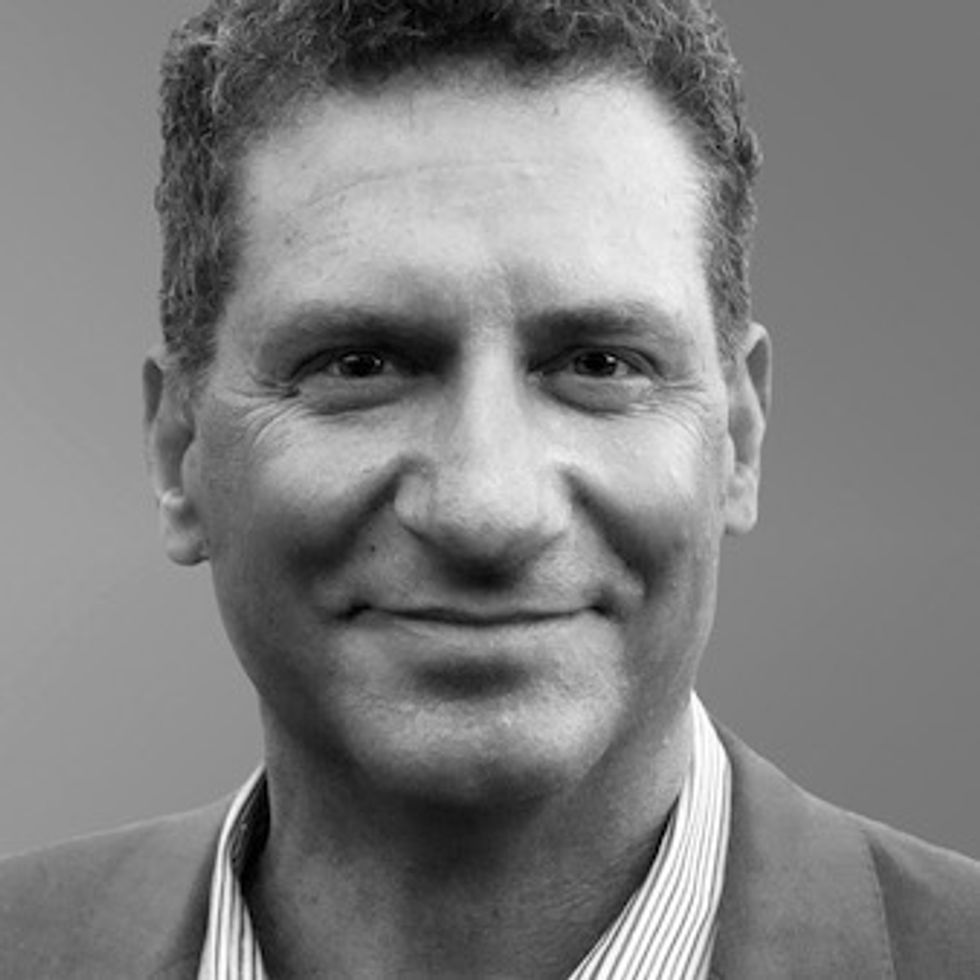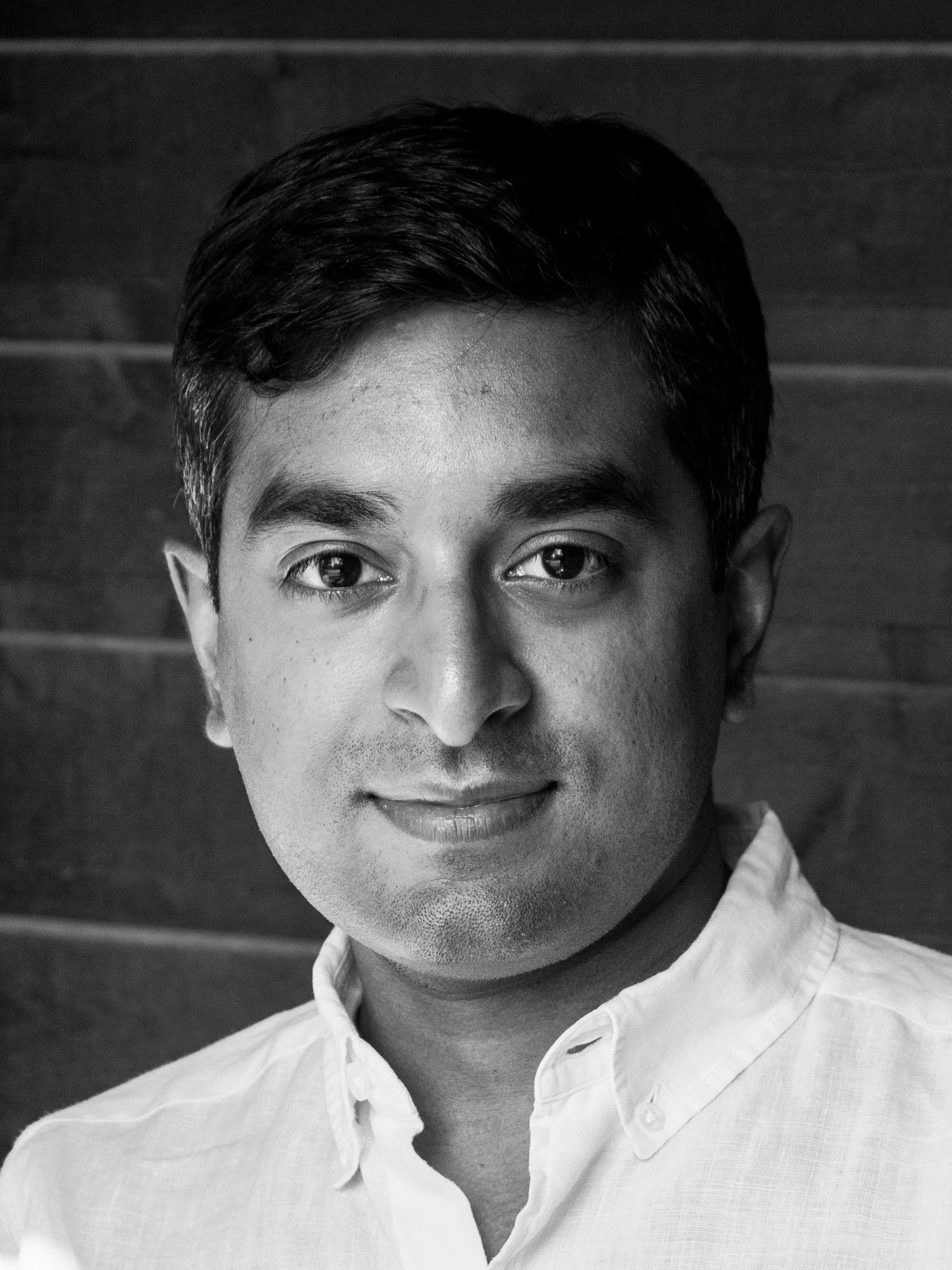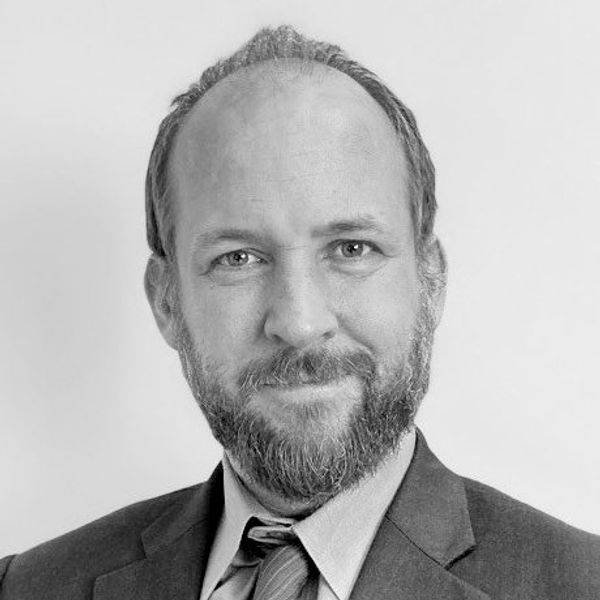Trending Now
We have updated our Privacy Policy and Terms of Use for Eurasia Group and its affiliates, including GZERO Media, to clarify the types of data we collect, how we collect it, how we use data and with whom we share data. By using our website you consent to our Terms and Conditions and Privacy Policy, including the transfer of your personal data to the United States from your country of residence, and our use of cookies described in our Cookie Policy.
{{ subpage.title }}
Why businesses are leapfrogging governments on water issues
Water is an incredibly personal topic, integral to the lives and traditions of communities everywhere. That means companies must be very careful about how they use water resources, even those to which they are legally entitled, says Shari Friedman, Eurasia Group's Managing Director for Climate and Sustainability.
"If they're taking it away or they're polluting a source, it's something that's incredibly visible, as people use it," she said. "And it's something the press can pick up on pretty quickly, and it affects a company's license to operate."
That reputational risk has led some companies to start proactively rolling out plans to manage water use and keep sources clean and sustainable even in the absence of government regulations. But the government still has a role to play, said Friedman, pointing to emerging regulations around so-called "forever chemicals" and the European Union's attempt to improve river health by 2027.
She spoke at a GZERO Live event organized by the Sustainability Leaders Council, a partnership between Eurasia Group, GZERO Media, and Suntory.
Watch the full livestream conversation: The global water crisis and the path to a sustainable future
The global water crisis and the path to a sustainable future
What would you do if you turned on the tap one day and nothing came out? By 2025, water scarcity is expected to affect about 50% of the world’s 8 billion people, and climate change is worsening the problem by changing global weather patterns.
That’s why this year’s COP28 climate summit, which kicks off Thursday in the United Arab Emirates, added water scarcity to the agenda, bringing it to the forefront of climate negotiations. In advance of the summit, the Sustainability Leaders Council - a partnership between Eurasia Group, GZERO Media, and Suntory - brought together leading experts and industry leaders to discuss the problem and possible solutions for a GZERO Live event.
Brian Richter, president of Sustainable Waters, framed the problem simply: Growing populations are straining fresh water sources by taking more water out faster than it can be replaced through natural processes like rainfall and snowmelt. Even in parts of advanced economies, like the arid western United States, farmers are struggling to adapt — and adapt they must.
“Irrigated farming is responsible for consuming about 90% of all the water that we use on the planet,” said Richter. “Anything that we can do to reduce that need, to grow our food, that's going to be very, very important.”
Efficiently using agricultural water will also help mitigate some of the adverse effects of heavy fertilizer use, which farmers can’t live without, according to Alzbeta Klein, director general of the International Fertilizer Association.
“Water is food,” she said. “What gives me a lot of hope is that the solutions actually exist. We know how to deliver plant nutrients through every drop of water and maximize the efficiency of every drop.”
Luckily, farmers are on board to change. Mike Nemeth, senior advisor of Agricultural and Environmental Sustainability at Nutrien, said he’s optimistic because of the “interest that I hear from the farming community about their willingness and desire to be part of water solutions – not just for their farm, not just for their area, but for the agri-food industry.”
And Shigeaki Kazama from beverage company Suntory, sponsor of the event, illustrated how the industrial sector can take the lead in innovating ways to recharge water sources. For over 20 years, Suntory has managed natural woodlands to recharge underground aquifers in the communities where it works.
“We now manage totally 22 forest areas that in total cover 12,000 hectares, which recharge twice the amount of groundwater that we take for our production in Japan.”
More intentional planning for water reuse can have a major impact, according to Colm Jordan of Indorama Ventures, which produces chemicals and associated products.
“We've managed to reduce water consumption by 90% in our facilities in Brazil by recycling the water, cleaning it, and using it again,” he explained.
Helping companies make those kinds of water-related shifts can mean big money for investors, too, said Manoj Jain, investment director at Unison Capital. “The material recovery, conversion of waste and plastic into fuel, desulfurizing the air, the flue-gases, all this is very profitable business,” he said. “We are investing in a circular economy, we are investing in the waste management, and that creates extremely positive social impact.”
Shari Friedman, Eurasia Group’s managing director for Climate and Sustainability, pointed out that companies can easily run afoul of local communities and the general public by failing to manage their water use responsibly.
“You're going to see some reputational risk in terms of water use because water is so integral to people,” she said. “If [a company is] taking it away or they're polluting a source, it's something that's incredibly visible.”
But while the private sector is making changes out of self-interest, governments are lagging well behind on the issue of water management.
James Dalton, director of the Global Water Programme at the International Union for Conservation of Nature, said, “roundabout 90% of global water policy is out of date” and urged governments to dust off the old laws and have a look at what can be done to future-proof the system.
“Most countries are 20 years behind where they need to be now on reforming water policy,” he said. “We need to be looking at water policy now for 20 years ahead so we can build the trajectories. That means that we're effectively 40 years behind.”
But Tanvi Nagpal water policy expert and a consultant for Tetra Tech says there’s a special opportunity in the US to correct historic policy errors thanks to the Biden administration’s Inflation Reduction Act, which has set aside money to replace dangerous lead pipes and update plumbing infrastructure.
“40% of all of the investment is going into disadvantaged communities,” she said. “These are communities that have faced water shortages or no sewage treatment or terrible quality water for a generation, and we can no longer ignore them.”
Watch the full discussion above, and don’t forget to subscribe to GZERO Daily to get the heads up about future conversations right in your inbox.
- Water will become very political in 2023, says Eurasia Group analyst ›
- The uncomfortable truth about water scarcity ›
- Geoengineering: science fiction or a solution to the climate crisis? ›
- Insurance companies are feeling the heat of climate crisis ›
- The urgent global water crisis ›
- Will the world come to grips with its water crisis in 2023? ›
- Why businesses are leapfrogging governments on water issues - GZERO Media ›
Watch today's livestream: "High and Dry: Tackling Global Water Stress"
WATCH THE REPLAY: By 2025, water scarcity is expected to affect around two-thirds of the world's population, and a similar proportion of companies will encounter significant water-related risks throughout their operations. Adding to the challenge, existing policy measures fall short of addressing this issue adequately. Resolving this crisis demands increased cooperation between public and private entities.
Join GZERO Media live today at 8 am ET as we delve into practical approaches spanning various regions and industries to address water scarcity globally.
Franck Gbaguidi, Director for Climate and Sustainability at Eurasia Group will moderate the livestream conversation, sponsored by Suntory, with:
- James Dalton, Director, Global Water Programme, IUCN
- Shari Friedman, Managing Director for Climate and Sustainability, Eurasia Group
- Manoj Jain, Investment Director, Unison Capital
- Shigeaki Kazama, Executive Officer and Division Deputy COO, Sustainability Management Division, Suntory Holdings
- Alzbeta Klein, CEO, International Fertilizer Association
- Mike Nemeth, Senior Advisor, Agricultural and Environmental Sustainability, Nutrien
- Tanvi Nagpal, Senior Technical Research Advisor, URBAN WASH Program, Tetra Tech
- Brian Richter, President, Sustainable Waters
Watch at gzeromedia.com/sustainability
High and Dry: Tackling Global Water Stress
Wednesday, November 29, 2023 | 8 am ET | 2 pm CET | 10 pm JST
Episode 9: What's next in 2023?
Listen: "We are coming out of a period of uncertainty," says David Bailin, Chief Investment Officer at Citi Global Wealth. "We've all been thinking it would go much faster than it has, but in the event we get to a more normal economy in 2024, given how vastly impactful COVID was, I think that that's a pretty fast outcome."
In the latest episode of Living Beyond Borders, a podcast produced in partnership between GZERO and Citi Global Wealth Investments, Bailin is joined by Eurasia Group President Ian Bremmer to discuss what's happened so far on the economic and political stage, and what we might look forward to in the back half of the year and into 2024.
From the ongoing conflict with Russia, to interest rates and government regulation, to tensions with China, Bailin and Bremmer talk through the biggest risks and opportunities they see in the next six months. They also discuss the rapid rise of artificial intelligence, political polarization, and more.
This episode is moderated by Shari Friedman, Eurasia Group’s Managing Director of Climate and Sustainability.

Shari Friedman
Managing Director of Climate and Sustainability, Eurasia Group

David Bailin
Chief Investment Officer, Citi Global Wealth

Ian Bremmer
President, Eurasia Group and GZERO Media
Episode 7: How AI is changing our economy
Listen: "We're entering into another leg of a continued industrial revolution which is going to be marked by collaboration between humans and machines," says Archie Foster, Managing Director and Head of Thematic Equities at Citi Investment Management. "This will include industrial automation, robotics, and AI," he adds.
In the latest episode of Living Beyond Borders, a podcast produced in partnership between GZERO and Citi Global Wealth Investments, Foster is joined by Dev Saxena, Director of Eurasia Group's Geo-technology Practice, to go beyond the hype surrounding generative AI and ChatGPT to understand how it can truly affect the economy and our political systems in the coming months.
While the fears about job losses may be overblown or premature, there is no question that the use of this technology is changing jobs and industries. As tech giants increasingly adopt AI to improve productivity, we'll look at the main challenges they face, as well as what regulators need to keep in mind as elections around the world continue to be susceptible to misinformation.
This episode is moderated by Shari Friedman, Eurasia Group’s Managing Director of Climate and Sustainability.

Shari Friedman
Managing Director of Climate and Sustainability, Eurasia Group

Archie Foster
Managing Director and Head of Thematic Equities, Citi Investment Management

Dev Saxena
Director of Geo-technology , Eurasia Group
- Episode 6: Can the US and China find common ground? ›
- Episode 3: Inflation Nations: What to know about inflation and interest rates - GZERO Media ›
- Episode 4: Broken (supply) chains - GZERO Media ›
- Episode 5: Energy transition today - GZERO Media ›
- Episode 8: Global food (in)security - GZERO Media ›
- What's next in 2023? - GZERO Media ›
- AI for good, AI for bad: Bringing balance to the force - GZERO Media ›
Episode 6: Can the US and China find common ground?
Listen: "I think we're entering into a period when it will be more attractive to invest outside of the US and to invest in China and Pan-Asia than we've probably seen in the last few years," says David Bailin, Chief Investment Officer at Citi Global Wealth.
In the latest episode of Living Beyond Borders, a podcast produced in partnership between GZERO and Citi Global Wealth Investments, Bailin is joined by Ian Bremmer, President and Founder of Eurasia Group and GZERO Media, to get the latest on the relationship between the United States and China, and their power over the rest of the world.
With competing motivations, the superpowers are both looking at ways to protect themselves - from the 2022 CHIPS and Science Act in the US to President Xi Jinping's increasing diplomatic moves with Europe and elsewhere. But the countries are also intertwined, and they are each looking to navigate a delicate balancing act on the global stage.
This episode is moderated by Shari Friedman, Eurasia Group’s Managing Director of Climate and Sustainability.

Shari Friedman
Managing Director of Climate and Sustainability, Eurasia Group

David Bailin
Chief Investment Officer, Citi Global Wealth

Ian Bremmer
President, Eurasia Group and GZERO Media
- Episode 2: The economic power of women - GZERO Media ›
- Episode 3: Inflation Nations: What to know about inflation and interest rates - GZERO Media ›
- Episode 4: Broken (supply) chains - GZERO Media ›
- Episode 5: Energy transition today - GZERO Media ›
- Episode 8: Global food (in)security - GZERO Media ›
- What's next in 2023? - GZERO Media ›
- Episode 7: How AI is changing our economy - GZERO Media ›
Episode 5: Energy transition today
Listen: "It actually all comes down to one thing and that's money," says Raad Alkadiri, Managing Director of Energy, Climate and Resources at Eurasia Group. "Will there be the money for investment in renewables, in energy efficiency made available? And I'm not just talking about the industrialized world, I'm talking about globally."
In the latest episode of Living Beyond Borders, a podcast produced in partnership between GZERO and Citi Global Wealth Investments, Alkadiri is joined by Malcolm Spittler, Global Investment Strategist and Senior US Economist at Citi Global Wealth Investments, to look at where the energy transition to renewable fuels stands globally, after setbacks from the pandemic and geopolitical instability.
They discuss the increasing need for energy security being a big driver for renewable energy in regions like Europe, how the war in Ukraine is still affecting energy markets, and what kinds of investments need to happen in technology and infrastructure to realize more sustainable and cleaner energy globally.

Malcolm Spittler
Global Investment Strategist & Senior US Economist, Citi Global Wealth Investments

Raad Alkadiri
Managing Director of Energy, Climate and Resources, Eurasia Group

Shari Friedman
Managing Director of Climate and Sustainability, Eurasia Group
- Episode 7: Future-proofing: How we fix broken supply chains ›
- Episode 9: US/China power struggle, the global political balance, and your finances ›
- Episode 1: Should I STILL be worried? ›
- S3 Episode 9: US/China power struggle, the global political balance, and your finances - GZERO Media ›
- Episode 6: Can the US and China find common ground? - GZERO Media ›
- Episode 7: How AI is changing our economy - GZERO Media ›
Episode 4: Broken (supply) chains
Listen: "Other than the impacts of the pandemic, which are easing, and from Russia/Ukraine, I'd say that the greatest risk to global supply chains today and moving forward will likely be from the US-China relationship, and the movement towards selective decoupling," says Jon Lang, Director for Trade and Supply Chains at Eurasia Group.
In the latest episode of Living Beyond Borders, a podcast produced in partnership between GZERO and Citi Global Wealth Investments, Lang is joined by Charlie Reinhard, Head of Investment Strategy for North America at Citi Global Wealth Investments, to discuss how global supply chains have largely adapted to and moved on from changes that occurred during the global pandemic.
While there are some impacts from the war in Ukraine and pent up demand, they also look at how tension between the US and China, as well as increasing regulation and calls for transparency, are changing the shape of supply chains as well as the economy as a whole.

Jon Lang
Director for Trade and Supply Chains, Eurasia Group

Charlie Reinhard
Head of Investment Strategy, North America, Citi Global Wealth Investments

Shari Friedman
Managing Director of Climate and Sustainability, Eurasia Group
- The Graphic Truth: The great supply chain squeeze ›
- Episode 7: Future-proofing: How we fix broken supply chains ›
- Episode 9: US/China power struggle, the global political balance, and your finances ›
- Episode 1: Should I STILL be worried? ›
- S3 Episode 9: US/China power struggle, the global political balance, and your finances - GZERO Media ›
- Episode 6: Can the US and China find common ground? - GZERO Media ›
- Episode 8: Global food (in)security - GZERO Media ›
- Episode 7: How AI is changing our economy - GZERO Media ›

